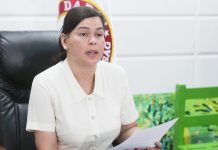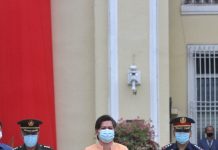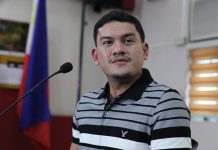THE private and public sectors are already working on how to expand the stakeholders of the Davao Industry Cluster Capacity Enhancement Project (DICCEP) as it prepares for the second phase of its implementation.
Department of Trade and Industry (DTI) 11 regional/DICCEP director Marizon S. Loreto said the evaluation results released by the Japan International Cooperation Agency (JICA) and the official development assistance (ODA) that funded the first phase of DICCEP, are impressive, citing the early wins of the various initiatives implemented under the project. DTI 11 is the convenor of the industry clustering initiative for the region.
“With the success of DICCEP 1, the JICA is recommending that the best practices and early wins be disseminated throughout the country. These can serve as guides for the other DTI regional offices as they embark on implementing the national ICCEP,” she said.
Loreto said that since DICCEP 2 is an upgraded version, JICA is also suggesting that the stakeholders involved should be expanded.
“It means that we have to look at all levels of the value chain on a per industry cluster basis. We have to involve everyone who is relevant to the clusters,” she said.
Loreto added that, aside from the present eight industry clusters, three more clusters recently adopted by the Regional Development Council (RDC) will already be part of DICCEP 2, also an upgrading move. [Jenny Molbog-Mendoza/DTI 11]
The eight industry clusters included in DICCEP 1 are mango, banana, coconut, seaweed, mining, wood, tourism and information and communications technology (ICT), On the other hand, the three new clusters are bio-fuel, livestock and poultry, and machineries and equipment parts.
“We really are hoping that we can already start mobilizing the three newly-added clusters. Well, we are very optimistic that we can do that soon, especially if our partner agencies will continuously support DICCEP 2, the way they did in DICCEP 1,” she said.
Loreto said the stakeholders must be prepared for DICCEP 2 should the JICA no longer fund it, although there’s a big chance that it will still back DICCEP 2 and its nationwide implementation.
“The challenge really is on sustainability. With or without JICA’s assistance, DICCEP must move forward. It is Davao region’s strategy for sustainable economic growth. Let’s ensure that the fire will not die down, so to speak,” she said.
With the challenges of sustaining DICCEP even without funding assistance from an ODA, DTI Management Support and Special Concerns chief and DICCEP manager Romeo L. Castañaga encouraged the involved agencies to include industry clustering-related initiatives into their 2011 budget.
“We can actually prioritize those projects or activities that will give the most impact. In that way, we can maximize the utilization of our budget,” he said stressing that the private sector will still take the lead and the government will give the necessary assistance.
Consultations for DICCEP 2 will start next month until early next year. The three-year implementation of DICCEP 2 is expected to start in the next Japanese fiscal year.






